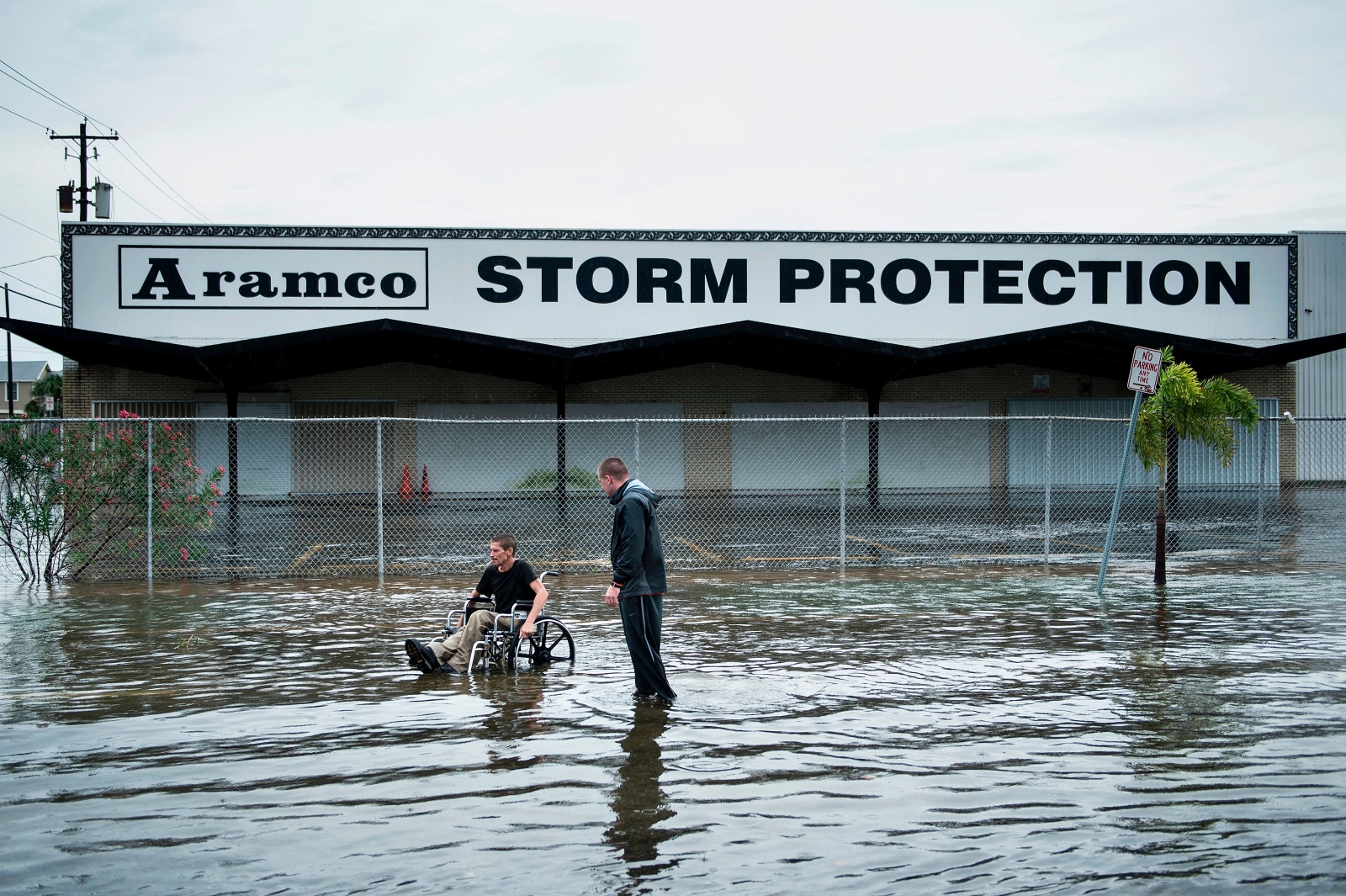Countries across the world have largely left people with disabilities out of their climate policies, according to a report published on Friday. As a result of that oversight, when climate disasters like hurricanes and heat waves strike, those with disabilities are among the most vulnerable.
“Climate change has a disproportionate impact on persons with disabilities, but this is not inevitable,” said International Disability Alliance advisor Elham Youssefian in a release on the report, co-published with McGill University’s Disability Inclusive Climate Action Research Program. “It is the result of the systematic failure of states to engage with persons with disabilities.”
Those failures can be a matter of life and death. Evacuating from hurricanes and flood waters, and finding accessible shelter, is fraught with danger for people who use wheelchairs. Rolling power outages during the California wildfires of 2017 endangered people with chronic illnesses who rely upon medical devices like respirators. And when a heat wave struck Montreal in 2018, killing 66, people with schizophrenia — whose medication commonly makes them sensitive to heat — represented a quarter of the deaths, even though they form just 0.6 percent of the city’s population.
The new analysis shows most governments are overlooking this group of people entirely. Assessing the pledges and policies of each country participating in the landmark Paris Agreement, the authors found just 35 of the 192 countries mention people with disabilities in their plans to reduce greenhouse gas emissions, while 45 refer to disability in their national climate adaptation plans. None of the world’s mitigation plans, which address ways to reduce the risk of climate events, mention people with disabilities at all. Even when disability is mentioned, the authors concluded, it’s only in a “cursory manner” and lacks the rigor of actual mechanisms to include the disability community in policy-making.
Sébastien Jodoin, an expert on human rights, disability, and climate change at McGill University and co-author of the report, said while he wasn’t surprised by their findings, he was deeply disappointed. People with disabilities “have been systematically ignored,” he told the Guardian. “These are some of the people who are most marginalized in our societies.”
Major countries like the U.S., United Kingdom, France, and China are noticeably missing from the list of those whose policies account for people with disabilities. Many of the countries that do make the list are small or developing nations like Kiribati, Moldova, and Togo. Jodoin noted that may be because wealthier countries, which help finance other nations’ climate goals, require provisions for vulnerable groups like people with disabilities, children, and the elderly — even if their own policies don’t mirror those stipulations.
The lack of disability inclusion in climate policy is felt not only in the midst of disaster, but also in the day-to-day. Many public transit systems, for instance, are inaccessible to people who have physical or visual impairments. Last fall, Israel’s energy minister Karine Elharrar, who uses a wheelchair, couldn’t participate in the first day of the U.N.’s COP26 climate conference because it wasn’t accessible.




